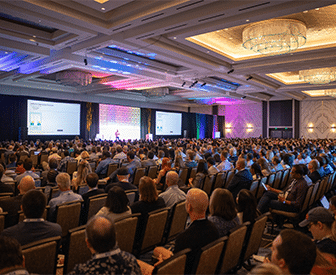As the federal government’s budget standoff and shutdown lingers on, the impact on the financial well-being of affected federal workers and federal contractors continues to mount. Banks and credit unions around the country have responded in a variety of ways, with some promising flexibility to borrowers and others offering up special credit programs.
The mortgage borrowing and small business lending markets — both extensively supported by the federal government — has also been affected by the shutdown. Some types of these loans have ground to a halt until certain agencies are back in business, such as the Internal Revenue Service which verifies income data, and the Small Business Administration with its loan guarantee programs.
Certain agencies affecting financial services, such as the federal banking and credit union regulators, have not been closed as they are not subject to the federal appropriations process. Others, such as the Federal Trade Commission, are closed for the duration.
Approximately 800,000 federal employees have been furloughed, and others are working but without pay.
The government’s confrontation over border security underscores just how close to the line many Americans run their finances. The current shutdown, which began Dec. 22, is now the 21st in U.S. history, and it will happen again (smart financial marketers will bookmark this page).
Over the past decade, multiple surveys reveal that many households can’t endure any interruptions in their income; they lack any meaningful savings for such emergencies. Postings on discussion boards across the web show how financially stressed Americans are in normal circumstance, with many worrying about their ability to afford necessities like food and rent.

Why Industry Cloud for Banking?
PwC’s Industry Cloud for Banking helps deliver personalized products and services that today’s customers expect.

Join industry’s leading AI conference - free passes available!
Ai4 is coming to Las Vegas, August 12-14 2024. Join thousands of executives and technology innovators at the epicenter of the AI community.
Read More about Join industry’s leading AI conference - free passes available!
On January 11, in response to the crisis, federal and state banking regulators issued a short joint press release urging banks and credit unions to work with affected consumers.
Some governmental agencies have issued guidebooks and tip sheets suggesting how those affected by the shutdown might cope with the financial impact. For instance, the federal Office of Personnel Management has issued sample letters federal workers can use when asking lenders for leeway on their loan payments.
But many of the ideas that have been proposed are not as helpful, and many are laughably absurd. Cash-strapped workers have been encouraged to hold garage sales, take jobs as mystery shoppers, house sit, babysit, and walk pets as possible sources of extra income.
“Have untapped teaching skills and expertise?” the U.S. Coast Guard asked in a five-page tip sheet it posted temporarily on its website. “Tutor students, give music or sports lessons.”
For most furloughed federal workers, such “tips” fall somewhere between “totally impractical” and “downright insulting.” So what are governmental employees supposed to do?
Opportunities for Banks and Credit Unions to Respond
The impact of the shutdown around the country varies based on the area’s dependence on federal employment, according to an analysis by the website WalletNews. Not surprisingly, the District of Columbia led the site’s list, followed closely by Maryland and Virginia.
As a result, many of the banks and credit unions announcing efforts to help impacted workers are based in- or near the nation’s capital. For example, the two credit unions closest to the apex of the crisis include Congressional Federal Credit Union and Department of Commerce Credit Union, which merged with White House Credit Union back in 2016.
Congressional FCU noted on its website that during the 2013 government shutdown, over 600 members received furlough relief loans totaling over $1.5 million. The credit union is offering the loans again at an initial rate of 0% during the 60-day draw period and a rate of 4% on the balance for 36 fixed equal monthly payments.
Among the furlough options offered up by DOCFCU :
- Emergency loans for up to $5,000 at 8.99%
- Skip-a-payment service without penalty for up to two months
- Emergency increases on Visa card and overdraft lines of credit.
Other credit unions in the D.C. area offering assistance during the shutdown include Navy Federal, FedChoice Federal, and PenFed.

Assistance Offered Outside the Beltway
Banks and credit unions around the country are stepping up with various programs and initiatives designed to offer some financial relief to government employees suffering through the shutdown.
America First Credit Union in Utah offers special furlough assistance loans of up to $4,000 that are interest-free for the first month and have a term of up to seven months. The credit union is also providing loan extensions and counseling.
Similarly, AgFed Credit Union in New Jersey offers qualifying borrowers a skip-a-payment option, and a “Furlough Line of Credit” for amounts between $400 and $6,000 with a 0% APR and a 60-day term.
Patelco Federal Credit Union announced its shutdown response plan to help as many as 25,000 members estimated to be affected by the shutdown, including 5.5% loans of up to $10,000, with a five-year term.
Provident Bank in New Jersey offers eligible customers refunds on fees that may kick in during a shutdown, including up to two refunds on mortgage and home equity late payment fees; up to three refunds on checking overdraft fees; up to two on credit card late payment fees; and refunds triggered by checking and savings account minimum balance requirements.
USAA spokeswoman Laura Propp told CNN that “thousands” have reached out to the bank for help or advice, so the bank is offering low-interest loans to their customers.
First Command Bank in Texas which, like USAA, serves federal contractors and U.S. military, in addition to zero-interest deposit advances and working with existing borrowers, is offering no-penalty deposit withdrawals, priority processing for card credit line increases, and the ability to use mutual funds that are not part of a tax-qualified program as collateral for a low-interest line of credit.
Not everyone has outlined formal, structured plans. Some, like 1st Source Bank in Indiana, are taking a more personal, hands-on approach. “Federal government employee expecting a delay in pay?” asks the bank on its homepage. “We are here to help. Please contact us regarding a customize financial plan.”

Banking Transformed Podcast with Jim Marous
Listen to the brightest minds in the banking and business world and get ready to embrace change, take risks and disrupt yourself and your organization.

The Power of Localized Marketing in Financial Services
Learn how to enhance your brand’s local visibility, generate more leads, and attract more customers, all while adhering to industry regulations and compliance.
Read More about The Power of Localized Marketing in Financial Services
Where Are The Megabanks?
Considering that most Americans have at least one account with either Bank of America, Chase, Citi or Wells Fargo, you’d think these institutions would take a more active role in the shutdown. After all, the crisis is affecting one in every 400 people in the country.
According to reports, most of the biggest consumer banks are offering to waive fees and interest charges for some customers, but not all.
Generally speaking, larger financial institutions haven’t been as responsive as community banks and credit unions. On Friday, January 11th, when many federal workers officially missed their first paycheck, US Bank began offering loans between $100 and $6,000 at low rates to accountholders. But that kind of targeted product has been the exception so far.
“It’s a case-by-case basis,” BofA spokesperson Lawrence Grayson said in an interview with Vox. A spokesperson from Chase also told Vox that “it all depends on the customer, what kind of loan they have with us, and what their situation is,”
JPMorgan Chase offers those impacted by the shutdown the same kind of assistance they extend to customers hit with other major hardships like natural disasters. An announcement on the Chase website includes a special phone line for affected consumers. Similarly, Wells Fargo published a page listing toll-free numbers customers could use for shutdown-related queries.
SunTrust also issued a statement urging customers to contact the bank if the shutdown hit their finances. “Because every situation is different, we ask that you contact us so we can work with you on a solution that fits your family’s needs,” it states.
Meanwhile Bank of the West issued a tips blog for small businesses covering various government services that would be impacted by the shutdown.
On the home page of Goldman Sach’s Marcus, a top-of-page banner urges any borrower affected by the shutdown to call to see if they qualify for a special payment deferral opportunity.
Marcus appears to be alone among online-only and other similar digital banks. Checking on websites and Googling for half a dozen well-known fintech lenders turned up no information proffered to borrowers affected by the shutdown.
Community banks and credit unions would be smart to step into the vacuum left by their larger rivals. These smaller institutions have earned a reputation for “exceptional service” and a “more personal experience.” This is their opportunity to demonstrate that difference.







